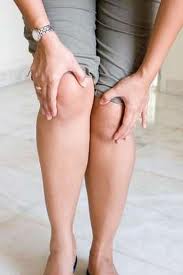 Women and men between the ages of 45 and 64 were more than twice as likely to have had knee replacement surgery in 2009 than in 1997, recent data from the Agency for Healthcare Research and Quality (AHRQ) show. The rates among women were even higher. Knee replacement surgery is most common in people whose knees have been damaged by osteoarthritis (OA), rheumatoid arthritis, or injury. Due to their age and fondness for sports, Baby Boomers fit neatly into each category.
Women and men between the ages of 45 and 64 were more than twice as likely to have had knee replacement surgery in 2009 than in 1997, recent data from the Agency for Healthcare Research and Quality (AHRQ) show. The rates among women were even higher. Knee replacement surgery is most common in people whose knees have been damaged by osteoarthritis (OA), rheumatoid arthritis, or injury. Due to their age and fondness for sports, Baby Boomers fit neatly into each category.
The percentage of people who have osteoarthritis, the most common type of arthritis, grows with age. About 27 million Americans have this condition, and, after age 45, it is more common in women. Osteoarthritis occurs when the cartilage that coats the end of each bone breaks down. This can cause the bones to rub against each other, causing pain and stiffness.
Knee pain may also be caused by rheumatoid arthritis, a less common form of arthritis that occurs when the membrane surrounding the joint becomes inflamed. Over time, inflammation damages cartilage, resulting in pain and stiffness. Rheumatoid arthritis affects about 1.3 million people—more women than men. It often begins in middle age, but can occur in children and young adults.
Arthritis after a serious knee injury or repeated stress is another reason for knee replacement surgery. Pain caused by ligament tears or bone fractures caused by sports injuries, for example, may be managed non-surgically for years. Over time, however, pain and limited knee function causes some patients to consider knee replacement surgery.
If you have knee pain from one of these causes, you've probably heard about treatments that are intended to relieve pain and even postpone the need for surgery. Some, but not all, of these options work, a review of 86 research reports funded by AHRQ has found.
What has been shown to work?
- Exercise. Becoming more active—whether through walking, swimming, or water aerobics—can reduce pain and make movement easier. Physical therapy may also help, so ask your doctor if you would benefit.
- Maintain a healthy weight. A 10 percent weight loss combined with a moderate exercise program reduced knee pain in patients with knee osteoarthritis by 50 percent, a recent study by Wake Forest University researchers has found.
- Pain medicines. Medicines can relieve osteoarthritis pain, AHRQ's research review concluded. Your doctor or nurse may prescribe an over-the-counter or prescription medicine.
What has been shown not to work?
- Glucosamine and chondroitin. Some people take nutritional supplements to help build new cartilage. Studies have found that people who take these supplements report less pain, but people who don't take the supplements report the same result.
- Joint lubrication shots. This treatment is a gel-like substance given by a shot into the knee. Studies have found that most people who get the shots do not improve very much.
- Arthroscopic knee surgery. In this procedure, a flexible tool is inserted into the knee, which is used to rinse the joint. It can be helpful for other types of knee problems, but not for knee osteoarthritis.
If conservative treatments don't provide relief from pain, it may be time to consider knee replacement surgery. The good news is that this procedure has been shown to give a better quality of life that makes it worth the cost, a Government-funded study has found. The benefits of this procedure are even better if the surgery is done at a hospital that does a large number of knee replacement procedures.
Before you have surgery, prepare yourself for the best possible outcome by asking questions of your surgeon. You will feel more in control of your health if you have a good idea of what to expect before, during, and after surgery.
Resources
Osteoarthritis of the Knee: A Guide for Adults
Choosing Pain Medicine for Osteoarthritis
Having Surgery? What You Need to Know
Handout on Health: Osteoarthritis
Handout on Health: Rheumatoid Arthritis
Total Knee Replacement Found Cost-Effective for End-Stage Knee OA
Weight Loss Best Medicine for People with Knee Osteoarthritis
Internet Citation: http://www.ahrq.gov/consumer/cc/cc010312.htm

Comments